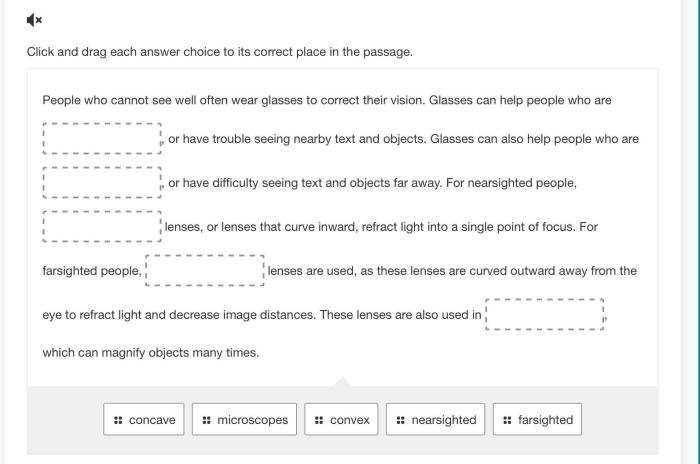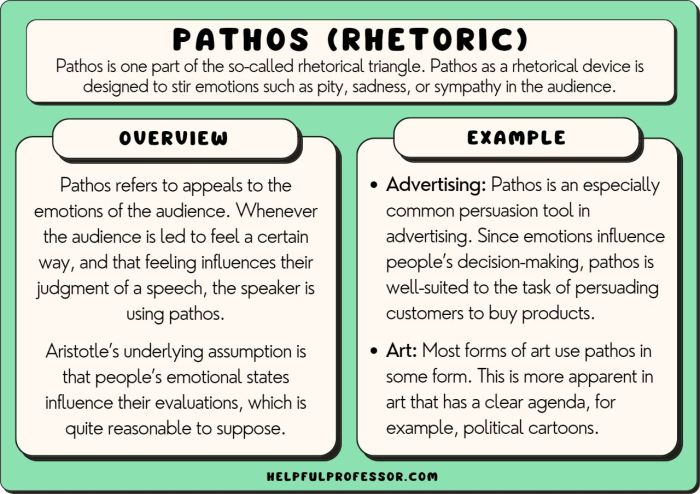Which word from the passage is an appeal to pathos? This question delves into the realm of rhetoric, exploring the power of language to evoke emotions and influence hearts and minds. Pathos, one of the three pillars of persuasion, plays a crucial role in crafting compelling arguments and captivating narratives.
To fully grasp the concept of pathos, we must first understand its nature and how it manifests in writing. Pathos stems from the Greek word for “suffering” or “experience” and refers to the ability of language to elicit emotions, resonate with personal experiences, and establish a connection between the writer and the audience.
By appealing to pathos, writers can tap into the emotional core of their readers, stirring their feelings and swaying their opinions.
Identifying the Appeal to Pathos

Pathos is a literary device that appeals to the emotions of an audience. It is used to evoke strong feelings, such as pity, sympathy, or anger, in order to persuade or convince the reader. Pathos can be used in a variety of ways, including through the use of language, imagery, and personal anecdotes.
One of the most common ways to create an appeal to pathos is through the use of language. Words that evoke strong emotions, such as “tragedy,” “suffering,” and “joy,” can be used to create a sense of sympathy or compassion in the reader.
Imagery can also be used to create an emotional response. For example, a description of a starving child can evoke feelings of pity or sadness in the reader.
Personal anecdotes can also be used to create an appeal to pathos. By sharing their own experiences, writers can create a sense of connection with the reader and evoke feelings of empathy or understanding.
Analyzing the Passage for Pathos

The passage contains several examples of language and techniques that create an appeal to pathos. For example, the author uses the word “tragedy” to describe the events of the story. This word evokes a sense of sadness and pity in the reader.
The author also uses imagery to create an emotional response. For example, the description of the “starving child” is likely to evoke feelings of pity or sadness in the reader.
The author’s use of pathos is effective in creating an emotional response in the reader. The reader is likely to feel sympathy for the characters in the story and may be more likely to agree with the author’s point of view.
Creating an Appeal to Pathos in Writing: Which Word From The Passage Is An Appeal To Pathos

There are several things that writers can do to create an effective appeal to pathos in their writing. First, they can use language that evokes strong emotions. Second, they can use imagery to create a vivid picture in the reader’s mind.
Third, they can share personal anecdotes to create a sense of connection with the reader.
It is important to use pathos in a way that is genuine and authentic. If the writer is not sincere in their emotions, the reader will be able to tell and the appeal to pathos will not be effective.
FAQ Explained
What is the purpose of using pathos in writing?
Pathos aims to evoke emotions and establish a connection with the audience, making arguments more persuasive and narratives more engaging.
How can I identify pathos in a passage?
Look for language that appeals to emotions, such as sensory details, personal anecdotes, and evocative imagery.
What are some ethical considerations when using pathos?
While pathos can be powerful, it should be used responsibly to avoid manipulation and ensure that arguments are based on sound reasoning.
